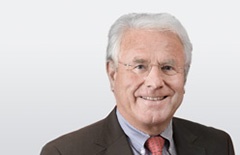Klaus Leisinger is Founder and President of the Global Values Alliance, Special Adviser on the post-2015 Development and Business Ethics to the UN Global Compact and member of the Consortium Board of the Consultative Group for International Agricultural Research (CGIAR). The following blog is based on a longer Working Paper prepared for the UN Sustainable Development Solutions Network.
The idea of “sustainable development” is held in high esteem these days. Most of the people involved in this discourse define development to be a desirable evolution of the economic, social, ecological, and political state of affairs – but have different notions of what is desirable and how to prioritize. A Wall Street economist will suggest other paths to sustainable development and set other priorities than a sociologist from Switzerland, an ethnologist from Australia, an environmentalist from Kenya, or a human rights activist in Mexico. If their wives and daughters were asked separately, they would yet again come up with different propositions. All these people are “right” from their particular perspective – and all miss the whole picture.
Conceptual differences have a wide-ranging influence on the policy choices made by political leaders, institutional policy makers as well as business leaders: Definitions predetermine the goals set and the actions initiated. The post-2015 development discourse has so far shown widespread support goals like “poverty eradication” and “satisfaction of basic needs.” There is also acceptance to “respect planetary boundaries,” “foster inclusive societies” and “fulfill Human Rights” – but, with regard to the ways and means of achieving these goals and in what priority, opinions differ significantly.
Contrary to the Millennium Development Goals process, where the “rich” committed themselves to help the “poor” with technology and financial resources, the Post-2015 Development Agenda requests that citizens and institutions of OECD countries modify their development path: Their current patterns of consumption, mobility, and energy use are not compatible with the requirements of global sustainability. Yes, technological innovation will help “greening” economic growth and thus help to better cope with planetary boundaries. Yet the hope of a technological Deus ex machina is not a recommendable strategic option for a climate change strategy in alignment with the “precautionary approach.”
It is an unreasonable demand and unjust to insist that low-income countries relinquish opportunities for economic growth fueled by inexpensive fossil resources. Such an imposition would imply that these countries are to accept slower improvement of poor peoples´ quality of life. The necessary change of course must be initiated and exemplified by the citizens of the high-income countries. Business as usual is no longer an option. Changing course necessitates inconvenient reforms, up-front investments, or even “sacrifices” in the context of production, consumption, and waste patterns of “the rich” wherever they have their homes. Unfortunately, here we are faced with the fact that there are few incentives for people and governments to:
- Pay for something today that might bring a return in the long term for anonymous people far away from home;
- Accept inconvenient restraints in accustomed consumption habits for a minuscule long-term benefit elsewhere;
- Abide by restricted patterns of individual mobility today for an infinitely small contribution to the prevention of problems in the future; and, especially for politicians; and
- Inflict short-term burdens on electoral constituencies for long-term change and benefits far beyond their election cycle.
The divergence of cost and benefit timelines is not compatible with the current pattern of political, economic, and individual decision-making – and thus the creation of a future we want for all.
The development debate has to be enriched by a value and ethics dimension that transcends the short-term economic and political spheres. There is substantial moral common ground to build upon. Examples are normative imperatives like the golden rule and global values such as reverence for life, solidarity, fairness (also in its intergenerational meaning), and equality. Such values have been upheld in all cultures, by all religions, and over time. People cannot live together in peace and prosper without their spiritual and metaphysical aspirations duly considered. Communities cannot flourish without the continuous fostering of their social capital. Adding spiritual and value dimensions, as well as a psychological one, to the sustainable development discourse is not an esoteric obliquity; it is a necessity to cope with short-term thinking based upon shortsighted goals.







